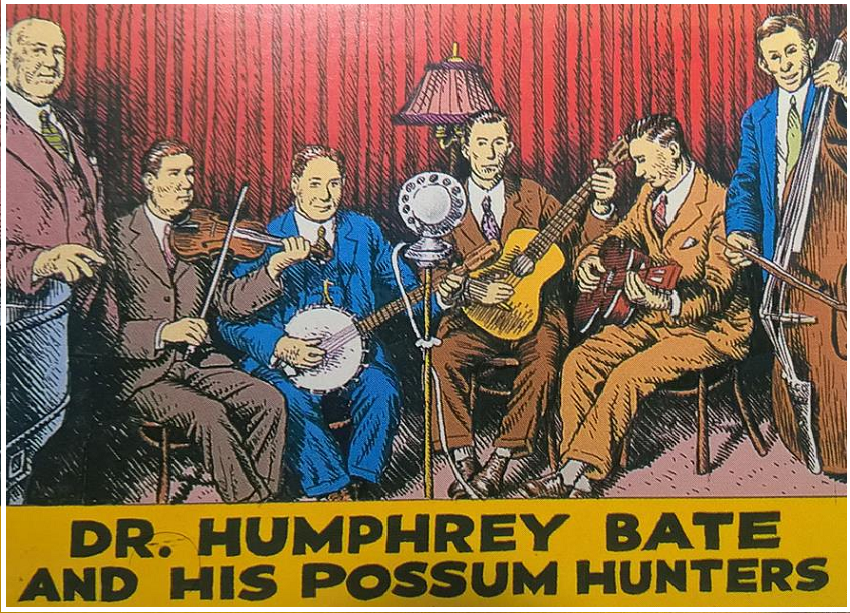DR. HUMPHREY BATE AND HIS POSSUM HUNTERS
Artist Biography by Eugene Chadbourne in allmusic
This old-time string band was led by one of the great country harmonica players, who also happened to be a physician and a graduate of Nashville's Vanderbilt University. His group was known as the Augmented Orchestra when it arrived for what would be the historic first ever broadcast for the Grand Ole Opry, but disc jockey, promoter, and host George Hay insisted the group change its name to the Possum Hunters in one of his typical attempts to establish "hick" personalities for his performers. The good Dr. Bate was told to dress in overalls when he played his harmonica, and his ukulele-strumming daughter Alcyone Bate Beasley was forced into the kind of rustic gingham dress that no self-respecting Nashville city slicker would have been caught dead in. Dead, no, but live on the Opry, yes. Whatever it was called, Bate and his group was musically first-rate, strongly influenced by the country music traditions of western Tennessee. In his middle ages before he ever started performing, the harp-blowing doctor naturally had a good knowledge of traditional material going back farther than many other performers of his era. The band's recording career consisted of 16 titles for Brunwick and Vocalion. Like many recordings of unusual groups from this era, the tracks have become important historical documents, cherished by collectors. Alcyone did not appear on these records, which were re-released by County on the compilation Nashville Early String Bands as well as on several volumes of old-time string music on Marimac. The group's tunes are very popular airplay choices on old-time music shows, and have titles that certainly reflect Opry overlord Hay's taste in cornball rustica: "How Many Biscuits Can You Eat?," "Ham Beats All Meat," and "Throw the Cow Over the Fence" are among the selections recorded by Bates and company. Bate is also known for introducing black harmonica player DeFord Bailey to the Opry management and heavily pushing that he be included in the program, a move that ended in a sad, racially-charged controversy. Although the group did not record again it remained active as a performing unit until the death of the leader in the late '30s.
6 de 10 imágenes y audios de la colección PIONEERS OF COUNTRY MUSIC de R. CRUMB



